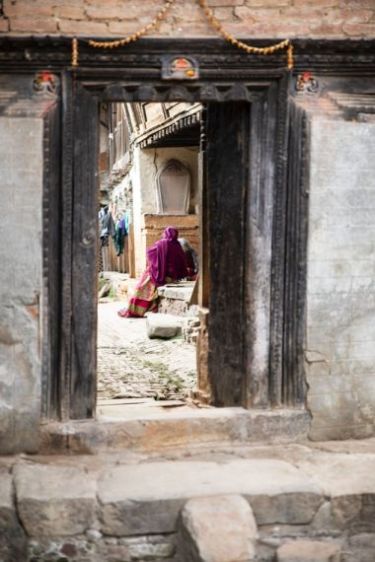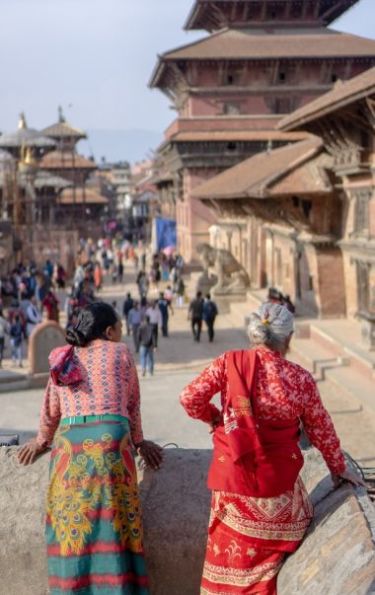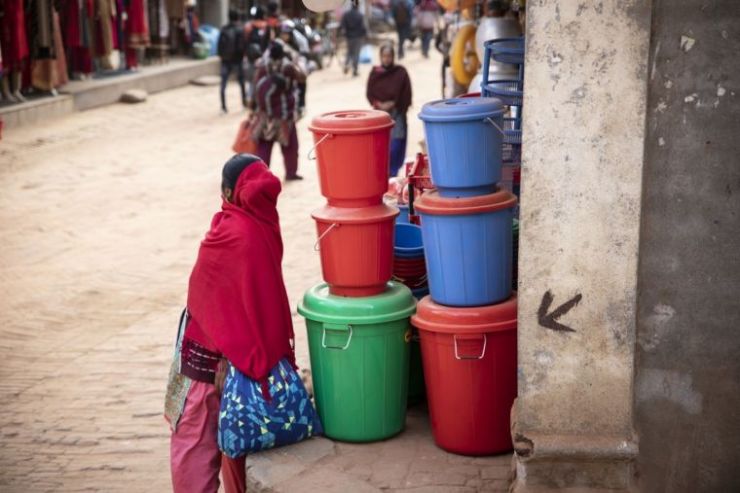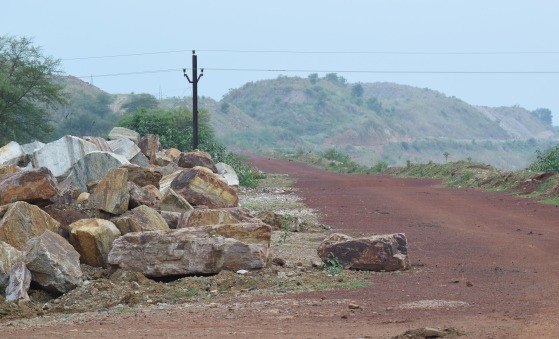
Names of the individuals in this article have been changed to protect their identity.
Shanti Devi Chaudhary, from Nepal, was six years old when her father made her go out to work for one of the landlords whom he owed money to, under the country's Kamalari system of forced labour for the wealthier.
"It was brutal," says Shanti, aged 32. "I did not have any choice."
The 'work' came in the form of harassment, sexual exploitation and starvation. In 2013, Shanti heard the government in Nepal had abolished the Kamalari system.
"The radio said we were free," she remembers. "But I was gripped with fear. Where will I go now? Where would I stay? I still remember my mother's stoic face when she said that my family was poor, and they couldn't take me in."
Shanti went to work on an Indian construction site, where she met her husband.
"We could both relate to each other's suffering, as he too was a former bonded labourer like me," she says.
They lived at a government site for the rehabilitation of former bonded labourers, but her husband became an alcoholic and started abusing her.
"I had nowhere to go, I didn't know who to go to for help," says Shanti.
Shanti's story features in a new report launched later this week by the charity Christian Aid, which argues that people of faith and religious institutions who believe in gender justice should join forces with secular feminist groups to fight against a rising tide of regressive politics that is threatening progress on women's rights globally.
The report, Equality at All Levels, says that faith leaders must recognise the part religions have played in putting forward patriarchal norms, and take real steps to get their own houses in order. They must also commit to promoting and supporting gender equality and human rights through their communities.
This year's International Women's Day which falls today, marks a key moment for gender equality.

Major setbacks have arisen as a result of a wave of culturally conservative and populist politics that has led to the election of governments hostile to gender equality, but also in social behaviour of different parts of society, including churches.
Twenty-five years ago, the Beijing Declaration and Platform for Action – a visionary agenda for gender equality and women's rights – was adopted by 189 governments. A quarter of a century later, women are more likely than men to live below 50 per cent of the median income. Meanwhile, most countries only give women three-quarters of the rights given to men, and 49 countries lack laws protecting women from domestic violence.
While progress has been made in gender equality in the 75 years in which Christian Aid has existed, recent trends have brought about setbacks, including the lack of implementation of equality laws in countries with deeply-entrenched discriminatory practices.
Back in Nepal, Christian Aid partner Kamaiya Pratha Unmulan Samaj, an organisation working with former bonded labourers, invited Shanti to a safe space to talk with others in her situation.
"It was a way to self-heal and regain my self-esteem," she says.
The organisation spoke to her husband and told him that what he was doing was wrong and a criminal offence.
"He still drinks, but then he doesn't abuse me anymore," Shanti says.
Shanti now belongs to a group engaging with local authorities about issues such as violence against women and girls, which has secured a commitment to strengthen police patrolling and to set up helplines for violence survivors.
With a small grant, Shanti has started mushroom farming.
She says: "I am looking forward to a violence-free life. If the mushroom farming goes well, then I will also live an independent life."

At the same time in Afghanistan, decades of war, insecurity and civil unrest, lack of good governance, weakness in state institutions and corruption have pushed people further into poverty, and contribute to a rising sense of frustration.
Women are still considered to be lesser humans in Afghan society, and are denied access to basic services and rights. Almost one in nine Afghan women face physical, sexual or psychological violence, or are forced into marriage.
For three decades, Christian Aid has been supporting organisations in Afghanistan that work to empower, liberate and rehabilitate women, to raise awareness about gender based violence, human rights and provide access to social justice.
Bibi Aisha, who also features in our report, is a 25-year-old widow who was displaced due to the conflict and drought from Bala Morghab district of Badghis province. When she and her daughters fled to a camp for internally displaced people, they lost everything.
"I know nothing about the rights of women," she says. "I don't believe in double standards. We should be treated equally."
Chine McDonald is Christian Aid media lead, and Marianna Leite is Christian Aid's global lead on gender and inequality.




